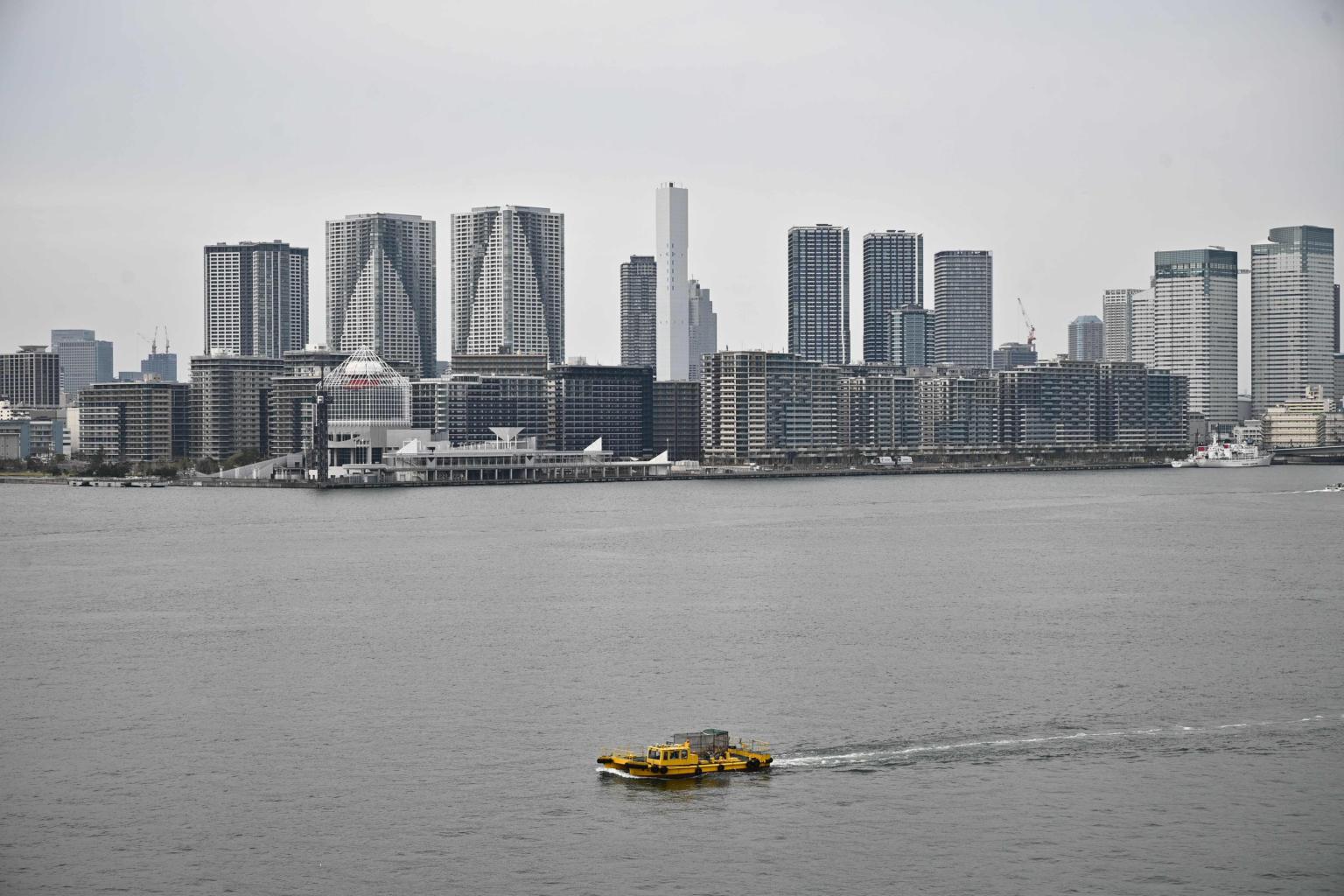Japan GDP shrank less than initial estimate in Q1 but economists question capex data
Sign up now: Get ST's newsletters delivered to your inbox

A boat sails through the Tokyo bay before the city skyline on April 7, 2020.
PHOTO: AFP
Follow topic:
TOKYO (BLOOMBERG) - Revised figures showed Japan's economy contracted less than initially estimated in the first quarter based on a survey that may have overstated the strength of business investment amid the pandemic.
The Cabinet Office's revised report on Monday (June 8) showed gross domestic product shrank an annualized 2.2 per cent compared with the last quarter of 2019, better than an initial estimate of a 3.4 per cent contraction. Economists had a expected a revision to minus 2.1 per cent.
The result still means Japan's economy has shrunk for two straight quarters, with an even sharper drop expected in the April-June period. Even before the release of the latest revision, economists were casting doubt on the accuracy of the latest first quarter data due to the unusually strong business investment readings in a report used to tweak the overall growth numbers.
The finance ministry's corporate survey had a low response rate amid the pandemic that may have skewed the results, the ministry said earlier this month after the report showed an unexpected gain in capital spending last quarter.
Analysts said they expect the GDP number to be revised down when the government releases a third estimate. The confusion will make it more difficult to get an accurate read on the economy's performance in the April-June period, when the recession may be at its worst.
Monday's data is unlikely to change the view among policy makers that the economic outlook is severe. Most analysts see Japan's recession deepening this quarter, with GDP shrinking more than 20 per cent, the most in records going back to 1955.
"The upward revision in first quarter GDP doesn't quite reflect reality and will be revised yet again in August," economist Mari Iwashita at Daiwa Securities said, adding that the changes will make it difficult to forecast second quarter growth.
Prime Minister Shinzo Abe two weeks ago ended a national state of emergency slightly ahead of schedule, shifting the focus to how fast the economy can rebound. A resurgence of the virus in Tokyo suggests consumer spending could stay subdued. Meanwhile, export markets are also struggling to reopen.
The Abe administration last month doubled its proposed stimulus measures to about US$2 trillion (S$3.1 trillion), or 40 per cent of GDP, to give lifelines to businesses and households. Some analysts say the packages don't do enough to boost spending and more aid will be needed.
Business investment was revised up to 1.9 per cent on a non-annualized basis from an initial estimate of -0.5 per cent. The change accounted for almost all of the upward revision to the headline GDP figure.
Consumer spending fell 0.8 per cent, declining for a second straight quarter.

